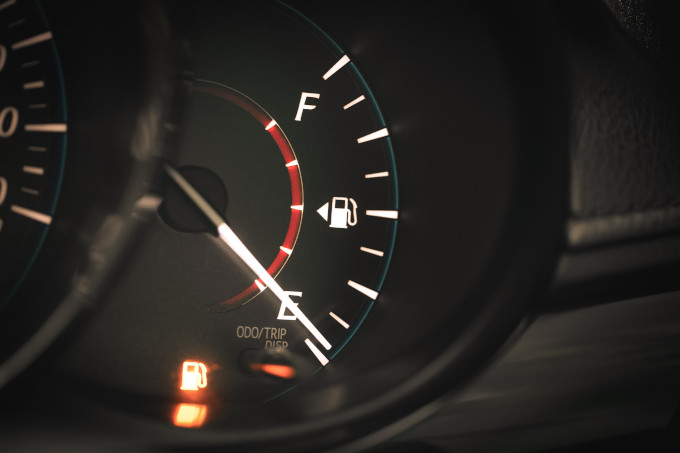As prices for everything from groceries to supplies continue to rise here in Knoxville, TN, and across the country, you may feel pressure to find ways to save money. One way to do that would be by saving money at the pump.
While gas prices are still relatively high—although there seems to be a downward trend—you can save money on gas by increasing your vehicle's fuel efficiency and improving its fuel economy.
Fuel Efficiency Vs. Fuel Economy
What is the difference between fuel efficiency and fuel economy? Fuel efficiency describes how well a vehicle can use fuel, while fuel economy refers to the specific number—the miles per gallon (MPG)—that a vehicle can drive. This number is set for each vehicle during testing in the lab under regulated conditions. That means that when you are driving your automobile, there are certain things you can do to make sure you keep your vehicle performing at top fuel efficiency.
The Main Causes of Bad Gas Mileage
First, let's look at some of the main reasons your fuel efficiency might not be quite where it should be. Little or poor maintenance of these car parts can lead to major fuel consumption:
Bad fuel injectors
Whether dirty, clogged, or damaged, if the fuel injectors are not working correctly, they can significantly decrease your vehicle's fuel economy. Fuel injectors are responsible for spraying fuel into the engine in a precise pattern to mix with air properly and combust in the engine. If this is off, it can lower your engine's efficiency.
Type of motor oil
Often, people stray from the owner's manual and use different types of motor oil in their vehicles, falling for special formulas like "high mileage engine oils." However, these motor oils can reduce fuel efficiency if not mentioned in your automobile's manual.
Bad oxygen sensors or air filters
Faulty oxygen sensors or dirty air filters can make your engine work harder than needed to compensate for the air-to-fuel ratio or clogged air filter debris, respectively.
Spark plug inefficiency
Spark plugs begin the process of combustion in the engine. If they malfunction or misfire, the fuel does not combust, wasting the unburnt fuel and drastically lowering fuel economy for your automobile.
Poor alignment
If your steering wheel is out of alignment, your engine is most likely working harder than it needs to fight the resistance between your steering and your vehicle's wheels. This will cost you pressure fuel and decrease your automobile's fuel economy.
Worn out brakes
Like poor alignment, worn-out or stuck brakes can make it harder for your engine to propel the vehicle forward. The resistance from the sticky brakes creates brake drag, which is when your engine fights against the brakes to move. Brake drag will make your fuel efficiency drop drastically.
8 Tips to Improve Fuel Efficiency and Gas Mileage
There are lots of ways to improve your vehicle's MPG. Follow these eight tips to increase fuel efficiency and save money at the gas pump.
- Avoid idling
Surprisingly, idling uses more fuel than restarting your automobile. Next time you come to a stop, consider turning off your engine completely and then restarting it. This will help you increase your fuel economy, and, ultimately, the money in your pocket. Of course, Knoxville traffic does not always allow you to stop idling completely, but the more you can avoid the habit, the more efficiently your vehicle will drive. - Use cruise control
Most automobiles lose fuel efficiency after reaching 45-50 miles per hour, and the faster you drive, the lower your fuel economy will be. It is best to stay within the speed limit and use cruise control to minimize fast acceleration and hard braking, which will utilize extra fuel. - Keep up with regular maintenance
You can avoid all the issues mentioned that are the main culprits for low gas mileage by always bringing your automobile to AAMCO for regular checkups and maintenance. Change your oil and replace your filters regularly to keep your vehicle running efficiently. Knowing warning signs of failure for large and essential components, such as your transmission, will help save time, money, and fuel costs. Additionally, if you see your Check Engine Light flick on, have your vehicle checked as soon as possible. - Do not carry unnecessary items
Extra bags, books, shoes, garbage, and other non-essentials can quickly add up and weigh down your vehicle, requiring it to use more fuel to power it forward. You can significantly increase your vehicle's fuel efficiency by removing unnecessary items from your automobile, including wind-resistant items on the outside, like cargo boxes and bike racks. - Watch your tires
While flat tires will undoubtedly decrease your fuel economy, even slightly under-inflated tires can reduce your MPG — and wear out your tire tread more quickly. Make you check the PSI in your tires regularly and that it equates to the suggested PSI in the owner's manual. - Limit the use of HVAC
The air conditioning system is a heavy user of your vehicle's fuel. If you limit your use of AC, more fuel can be used to power your vehicle efficiently. However, there is a catch-22: rolling windows down can also decrease fuel economy because it creates more resistance at certain speeds. Find a balance that works for you, and do your best to avoid both to increase MPG. - Plan your trips ahead of time
Before getting on the road, look up different routes to your destination and choose the most direct way. Also, use real-time traffic monitoring apps or software to avoid traffic jams. The less you have to slow down or stop, the less fuel your engine will need to use, making your vehicle drive much more efficiently. - Read the owner's manual
Get to know your vehicle and how to best optimize its fuel consumption by thoroughly reading the owner's manual. Learn about the care it needs and its different driving modes to understand how to make your vehicle fuel efficient.
What About Hybrid Vehicles?
Hybrid vehicles are different and require different tactics to optimize fuel use. Here are a few tips for drivers of hybrid vehicles.
- Keep the battery charged
For plug-in hybrids, always charge your battery whenever you can, so you can continue driving on electricity instead of gasoline. This will save you fuel, decreasing the number of times you have to stop for gas and saving you money. Check the owner's manual for the best charging advice for your particular vehicle. - Watch the energy monitor
The energy monitor will show you when you are using fuel, allowing you to make better decisions on when to use electricity or charge your battery. This way, you can optimize fuel consumption and increase fuel economy. - Avoid the "neutral" gear
While neutral gear helps increase MPG for regular gasoline-powered vehicles in start-stop traffic, it is bad for hybrid vehicles. Every time you put your hybrid automobile in neutral, it stops your vehicle from making electricity and discharges the battery.
Visit AAMCO to Equip Your Vehicle for Efficient Driving
If you are looking for ways to save money at the pump, increasing your vehicle's fuel economy can help. At our AAMCO Knoxville, TN Center, we can help you optimize your vehicle for better fuel consumption by checking things like fuel injectors, spark plugs, tire alignment, and any other routine maintenance you may need. Schedule an appointment to save money and increase your vehicle's fuel efficiency today!











